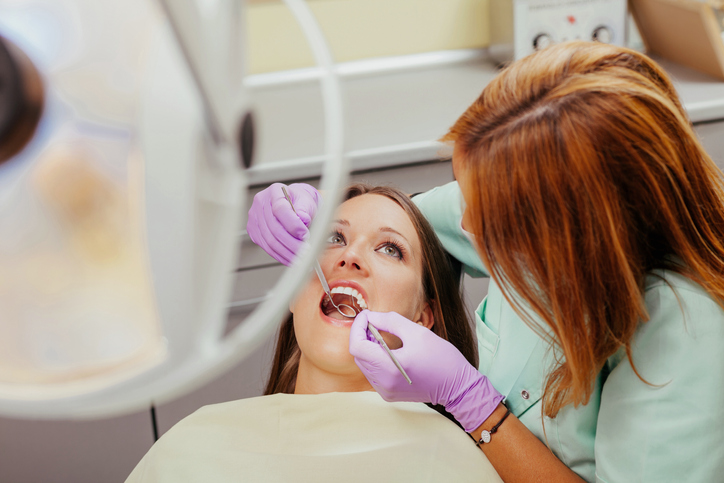
Sometimes you may need more than standard dental cleaning. That’s where a full mouth debridement comes in.
Suppose you went to the dentist and were told you needed a full mouth debridement instead of a regular cleaning. Naturally, you may wonder, “What is a debridement, and why do I need it?”
A full mouth debridement is a standard dental procedure to thoroughly clean teeth and gums. Your dentist may recommend it because your teeth have an excessive buildup of plaque and tartar. Once those substances are cleared, your dentist will have a better look into the status of your teeth and gums. While debridement will take a bit longer and is more extensive than a regular cleaning, it’s the first step in restoring your oral health. Read on to learn more about full mouth debridement.
What is debridement?
Let’s talk first about plaque and tartar. Plaque is a sticky substance that coats your teeth. Brushing daily can remove most of it, but not all. The remaining plaque can harden into tartar, which is much harder to remove. A dental hygienist can safely remove tartar for you during your semi-annual cleanings.
Unfortunately, scheduling dental cleanings around our busy lives can be challenging. If you haven’t seen your dentist for a while, you may need a debridement to remove a significant amount of plaque and tartar. That’s where it differs from a standard cleaning.
The procedure isn’t painful because your dentist will apply a local anesthetic. Then, using either hand-held instruments or an ultrasonic device that emits vibrations, your dentist will clear away the plaque and tartar. The dentist may finish by polishing the teeth.
Unlike a standard cleaning, debridement takes about an hour. The procedure may be split into two appointments about a week or two apart.
After the debridement, your dentist will better assess your oral health. An X-ray will show any cavities or gum disease. If the debridement was successful, your dentist will recommend you keep up with your semi-annual cleanings.
However, you may need a more extensive cleaning procedure known as scaling and root planing. Like debridement, scaling removes tartar on teeth. But unlike debridement, scaling removes tartar from beneath the gums. During root planing, the tooth’s root is smoothed to allow the gums to reattach to the teeth. It also eliminates periodontal pockets, spaces between the teeth and gums where plaque and bacteria can grow.
After the debridement, your teeth may be sensitive for a short time. But your teeth will look brighter and your gums healthier once you heal.
How to avoid a full mouth debridement
A full mouth debridement can be avoided if you attend your twice-yearly cleaning appointments. But there are other measures you can take to reduce plaque and tartar on your teeth:
Brush properly. Even if you brush two times a day, you may not be doing it correctly. Using an old toothbrush or one too stiff won’t do the job of removing plaque. Take the time to really clean your teeth. Brushing too quickly doesn’t remove plaque and tartar. Try an electric toothbrush, and always brush with fluoride toothpaste.
Floss daily. The only way to clean between teeth is by flossing. Use regular floss, a water flosser, or an interdental brush.
Steer clear of sweets. Sugar sticks to your teeth and increases the growth of bacteria, which leads to plaque and tartar. If you eat sweets, remember to rinse your mouth or brush afterward.
Time for a cleaning?
Schedule an appointment at Espire’s Norman, Oklahoma, location today! Our highly trained dentists and hygienists can thoroughly clean your teeth and check for any decay or gum disease. Don’t wait until you need a full mouth debridement to schedule an appointment!
Don’t live near our Norman office? Find one of our other locations near you.
Norman, OK
550 24th Ave. S.W.
Norman, OK 73069
